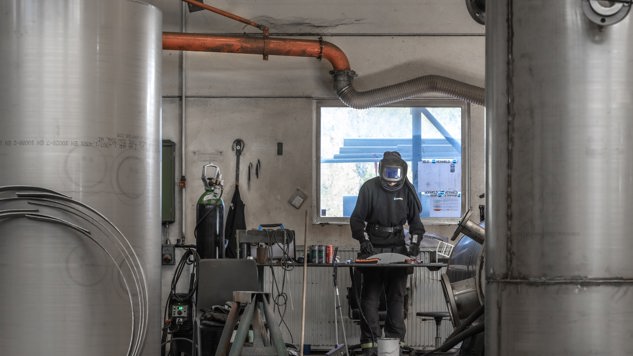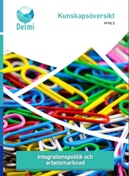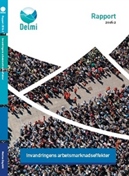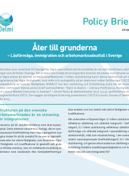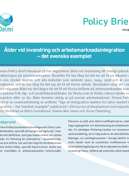Getting newly arrived refugees into work is often highlighted as a silver bullet solution to many problems that tend to be linked to lack of integration. The issue has been prioritized by decision-makers from across the political spectrum and several initiatives to strengthen refugees' path to work have been launched in recent years. But what does the research actually say about the effect of various labor market interventions for people who come to Sweden as refugees or as relatives of refugees?
Delmi policy brief 2022:10, (Municipal) efforts to facilitate labor market entry for refugees and their relatives, summarizes the results of a larger research project that has been financed with funds from the national research program on migration and integration run by the Swedish Research Council. The policy brief highlights the central role played by the municipalities, what the regulations look like and the effect of various initiatives to promote labor market integration of refugees. In order to be able to draw conclusions concerning the effects of municipal labor market-related interventions for the target group, the researchers have conducted an overview of previous Swedish and international research by:
- Compiling the results from studies of effects of Swedish municipal labor market-related efforts (regardless of target group).
- Compiling the results from studies of Swedish government interventions for refugees and other groups far from the labor market.
- Compiling the results from studies of labor market-related efforts for refugees in other countries.
The overview shows that the labor market integration of refugees and their relatives is positively affected by shorter processing times for asylum cases and opportunities to work during the asylum process period. Introductory programs, language courses and intensified matching efforts have also been shown to have good labor market effects. This also applies to subsidized employment, especially if they involve regular tasks. Municipal activation policy, i.e. a policy in which certain obligations are imposed on the recipients of municipal financial assistance, does however show no positive effects.
Delmi policy brief 2022:10 is written by Mattias Engdahl, PhD in economics, Anders Forslund, professor emeritus and Ulrika Vikman, PhD in economics, all from the Institute for Labor Market and Education Policy Evaluation (IFAU).
The Policy Brief was published 13.12.2022 and is only available in Swedish. For questions concering the content or the results, please contact the authors diretcly or the Delmi secretariat.
